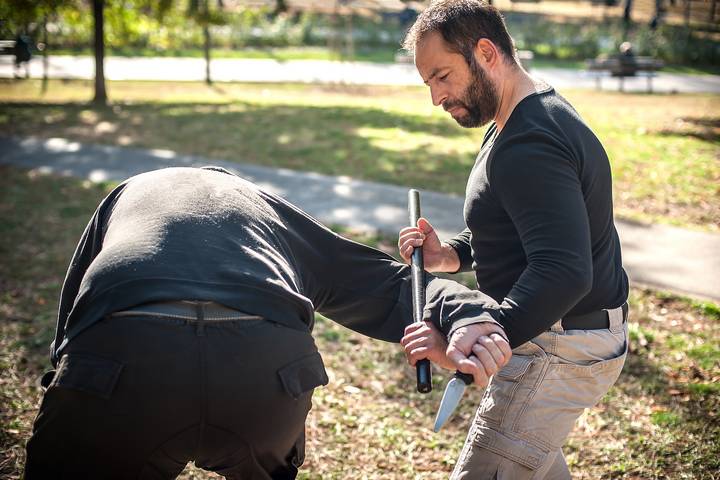10 Different Types of Assault Charges
An assault is defined as the intentional force applied directly or indirectly to another person without their consent, an attempt or threat to apply force to another person by an act or gesture, or intimidating, impeding or accosting another person while carrying or openly wearing a weapon.
While an assault doesn’t require physical force, the threat of violence or brandishing a weapon is enough to be charged. This defines assault charges in general, but several forms of assault carry different penalties.
Here are the ten different types of assault charges:
Type #1: Simple Assault Charges

A simple assault is among the most common types of assault. It involves an altercation like a push or shove up to a brawl, but there is no bodily harm done and no weapon used.
Two types of prosecution may be pursued depending on the severity of the assault. A summary conviction is processed by a judge and is the least severe where there is no need for jail time and no jury present. The more severe is an indictable offence which has a formal court proceeding. You will want the expertise from a criminal lawyer to help navigate these types of assault charges.
Type #2: Assault with a Weapon Charges

An assault with a weapon is where the act or threat of violence includes using a weapon. These types of assault charges could be a knife, gun or any other implement capable of causing harm. This charge can be prosecuted as a summary conviction or an indictable offence with a potential jail time of up to 10 years.
Type #3: Assault Causing Bodily Harm Charges

During an assault, there may be bodily injuries to another person. This can be prosecuted as an assault causing bodily harm and will be dealt with either as a summary conviction or an indictable offence with a penalty of up to 10 years in prison.
Type #4: Aggravated Assault Charges

Stepping up to a more serious assault is when it is considered aggravated. This means that more severe injuries could cause life-long impairment or even death. This also includes wounds (breaking of the skin), maiming (an injury that restricts a person from effectively fighting back), disfigurement (more than a temporary marring) and endangerment (a risk to their life with or without bodily harm.) Aggravated assault is only treated as an indictable offence and ranges from 18 months to 10 years in prison.
Type #5: Sexual Assault Charges

Sexual assault is defined as non-consensual sex that may include the threat or act of violence. This is considered a serious personal assault on another person and can either be prosecuted as a summary conviction or an indictable offence with 18 months to 10 years of potential jail time.
Type #6: Sexual Assault with A Weapon Charges

There are more severe types of sexual assaults, and they carry similar charges. Sometimes during a sexual assault, the person is threatened with violence or is physically harmed. There may also be a weapon used in the assault. The penalties for this assault may come through a summary conviction or an indictable offence and range from 18 months to 10 years in prison.
Type #7: Aggravated Sexual Assault Charges

Aggravated sexual assault takes it to a level of severe physical harm beyond sexual assault. This is when someone is badly injured or has the potential to die from the assault. This is only an indictable offence and, in the case of a weapon being involved, carries a minimum sentence of four years in jail.
Type #8: Assaulting a Police Officer Charges

All these assaults are against another person who is a civilian. When an assault is on a police officer, there is a separate charge and conviction. Both a summary conviction and an indictable offence may be prosecuted, so it depends on the severity of the assault. An assault on a police officer range from a simple assault up to aggravated and will carry different prison times of up to 14 years.
This is because peace officers should be able to carry out their duties without the threat of violence, and it is necessary to have these offences to protect them. A peace officer includes police, jail guards, a warden, a judge, a sheriff and even a pilot.
Type #9: Assault Against a Public Transit Operator Charges

There is a separate offence for the assault of a public transit operator and includes any vehicle that transports passengers like public transit and school buses. These types of assault charges carry similar sentences for assault.
Type #10: Consent Charges

What is most important about the assault is that there is no consent. The criminal code refers to an assault as no consent obtained from the complainant when the action of force or threat of force is used. It is then up to the crown to prove that the victim did not give consent to the assault.
Nobody wants to get into an altercation that leads to an assault charge. Understanding the different types of assault charges and what penalties they bring can help define the charges you may be dealing with. Always use the expert guidance and help of a qualified criminal lawyer if you are charged with assault.

